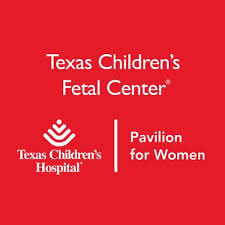HOUSTON – (March. 27, 2019) – Surgeons at Texas Children’s Fetal Center® have performed more than 100 in-utero neural tube defect repair surgeries for babies with myelomeningocele, a developmental defect in which the spine is improperly formed and the spinal cord is open to, and fused with, the skin. The condition, also known as spina bifida or an open neural tube defect (NTD), occurs in 3.4 out of every 10,000 live births in the U.S. and is the most common permanently disabling birth defect for which there is no known cure. NTDs are usually associated with hydrocephalus, or the buildup of cerebrospinal fluid in the brain, which requires surgical treatment to drain the fluid via an implanted device called a shunt. It’s common for children with spina bifida to have abnormal function of their bladder, bowels and legs. The goal of fetal surgical repair of spina bifida is to preserve leg function and reduce the need for a postnatal shunt. Learn more about spina bifida, here.
The standard of care for spina bifida is neurosurgical closure of the defect in the first days of life. However, advances in fetal surgery and the landmark clinical trial, known as the Management of Myelomeningocele Study (MOMS Trial), proved a fetal surgical repair leads to decreased rates of hydrocephalus and improved leg function compared to a postnatal repair.
Of the 100 total cases, 53 of the repairs were performed fetoscopically, an experimental, minimally-invasive surgical approach pioneered at Texas Children’s Hospital in 2014 by Dr. Michael Belfort, obstetrician and gynecologist-in-chief at Texas Children’s Pavilion for Women, and his team. Texas Children’s was the first center in the U.S. to correct spina bifida defects fetoscopically and is among just a few centers in the country that offers fetoscopic repair of spina bifida. Texas Children’s continues to offer open fetal surgery for spina bifida, the standard of care since 2012, for patients who do not qualify for or opt not to undergo a fetoscopic repair.
Through their research and outcomes data, Belfort and his team showed that performing the surgery fetoscopically yields the same outcome for the baby as the open repair, while being significantly less invasive for the mother. With a fetoscopic repair, the mother avoids having a large scar on her uterus, which decreases her risk of uterine rupture and preterm labor. It also lowers her risk of a potentially life-threatening condition called placenta accreta, in future pregnancies. Additionally, women who undergo fetoscopic repair are candidates for a vaginal delivery, which is not possible when open fetal surgery is performed.
“We are thrilled to offer this innovative and minimally-invasive surgical approach to our patients and their babies,” Belfort said. ”We thank the mothers and families who put their trust in our team and have the courage to undergo an experimental procedure.”
The experimental surgery, which continues to be subject to rigorous oversight by the U.S. Food and Drug Administration, was developed by Texas Children’s Fetal Center in partnership with Texas Children’s division of neurosurgery. The teams practiced on a child’s kickball that replicated the mother’s uterus. Inside the kickball, a doll acted as the fetus. By hoisting the ball into the air hung by various levers and pulleys, the team simulated the movement in the womb and practiced closing the spinal cord. Texas Children’s performed its first fetoscopic NTD repair in 2014 on Grayson Canezaro, now 4-years-old.
“The multidisciplinary collaboration with the Fetal Center on this surgical effort is an extraordinary example of the innovative spirit at Texas Children’s Hospital,” Dr. William Whitehead, pediatric neurosurgeon at Texas Children’s, said. “From a medical standpoint, we believe closing the defect both in-utero and fetoscopically, is a less invasive procedure for the mother, reduces her risk of preterm delivery and reduces the need for shunts.”
Texas Children’s Fetal Center is located on the fourth floor of Texas Children’s Pavilion for Women and is one of only a handful of facilities in the world to offer a full spectrum of maternal and fetal care. Comprehensive services include management of any complex pregnancy, genetic counseling and the full range of fetal diagnostic procedures. The Fetal Center also provides highly specialized fetal surgeries for a number of congenital malformations. Texas Children’s Fetal Center is among the nation’s leaders in providing high-risk maternal care and the diagnosis and treatment of abnormalities in unborn and newborn infants. For more information, please visit women.texaschildrens.org/fetal.


